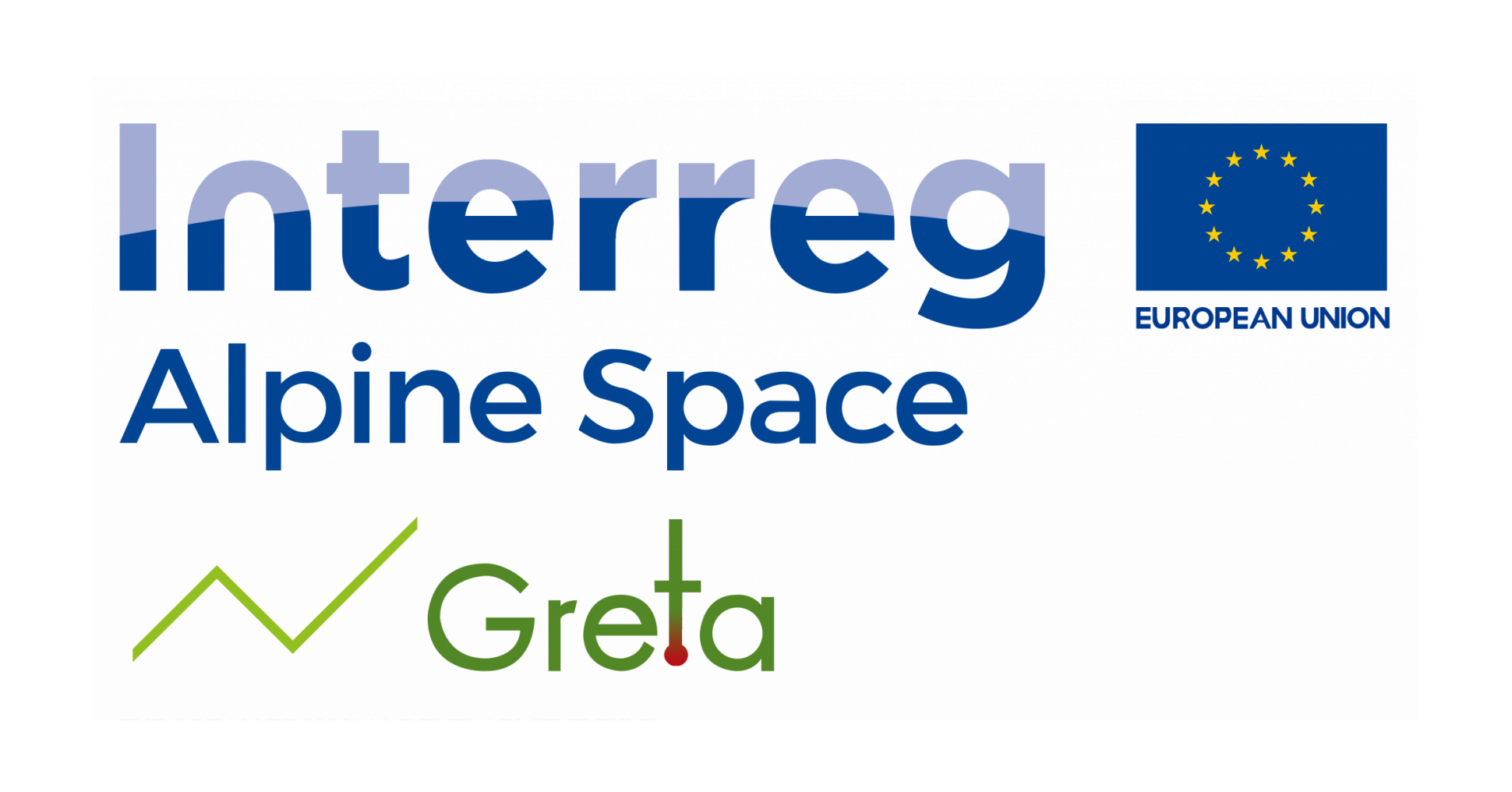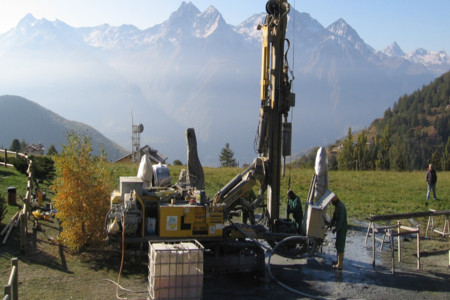
Overview
In the Alps, CO2 emissions, mostly related to touristic and residential heating, are one of the most urgent issues to tackle. Yet, until a few years ago, using the energy stored in the ground to heat buildings was not thought of as an option in the Alps. The GRETA project studied the opportunities, technical issues and economic viability of applying near surface geothermal energy to villages, public buildings with specific constraints and isolated Alpine huts. Thanks to GRETA, people can learn about the potential for shallow geothermal energy in their area; administrators can take advantage of policy guidelines; and everyone can better understand how long it takes for the initial investment to pay back. With this knowledge, a new heating system can be developed.
Factsheet
- 2014 – 2020
- Low carbon
- Establish transnationally integrated low carbon policy instruments
-
- Group 9: To make the territory a model region for energy efficiency and renewable energy
- 12/2015
- 12/2018
- 2.962.952 EUR
- 2.308.233 EUR
Partners
- Lead partner
- Germany
- Oberbayern
- München
- Christine Haas
- christine.haas@tum.de
- Italy
- Valle d'Aosta/Vallée d'Aoste
- St.
- Austria
- Wien
- Vienna
- Slovenia
- Zahodna Slovenia
- Ljubljana
- France
- Rhône-Alpes
- Villeurbanne
- Italy
- Piemonte
- Torino
- Italy
- Provincia Autonoma di Bolzano/Bozen
- Bolzano
- Germany
- Düsseldorf
- Mülheim an der Ruhr
- France
- Rhône-Alpes
- Villeurbanne
- Germany
- Darmstadt
- Frankfurt am Main
- Switzerland
- NordwestSwitzerland
- Basel
- Italy
- Lombardia
- Milano
- 48.149030211.5687805
- 45.74000977.354646
- 48.199526816.385756946450343
- 46.0708530514.51461744925663
- 45.77335734.8868454
- 45.06297217.6624557
- 46.494530211.3472734
- 51.40624556.935634
- 45.77673034.8675564
- 50.117673858.636413400398371
- 47.560297.5803424
- 45.48604249.1959558
Outcomes
-
Catalogue of good practice examples for shallow geothermal systems
ToolEvery partner country has provided a list of examples of existing SGE installations, which proved to be effective and sustainable.Non-conventional applications were highlighted, to give insight on the variable fields of application of SGE. The most interesting examples from different techniques and topics were chosen to serve as “good practice examples”. -
GRETA Guidelines – Shallow Geothermal Energy guidelines on the Cesba Wiki
ToolThe GRETA guidelines on Cesba-Wiki provide information on Shallow Geothermal Energy (SGE) systems, their principle of functioning and the suitability to use them."Bringing home energy from underground" The GRETA guidelines on Cesba-Wiki are targeted to inform the general public, technicians, multipliers like energy consultants and decisional authorities. They provide information on Shallow Geothermal Energy (SGE) systems, their principle of functioning and the suitability to use them. They further give an overview on legal requirements and regulations, on environmental constraints of SGE systems, and they show how to integrate SGE into local energy planning. -
GRETA WebGIS - mapping the geothermal potential
ToolThe WebGIS provides both large-scale and local-scale maps but also a simulation tool of spatial financial and economic evaluation of NSGE potential.The WebGIS provides o large-scale maps: mapping of possible geological interferences to the installation of NSGE systems o local-scale maps: mapping of the open- and/or closed-loop potential estimation of the GRETA pilot areas and further selected case study areas calculated with two methods (G.POT and TAP) developed by the project team o simulation tool: spatial financial and economic evaluation of NSGE potential using a GRASS GIS addon. The results can be compared to different alternative heating systems. -
GRETA video - Near Surface Geothermal Energy in motion
StrategyThe video explains the use of geothermal energy for heating and cooling purposes in a short and creative way.The GRETA project video has been awarded at the EUSALP Forum in Munich on 23rd Nov. 2017. Launched in October by Interreg Alpine Space, the video competition was open to the ongoing Alpine Space projects. The video explains the use of geothermal energy for heating and cooling purposes in a short and creative way (length: 2:18 min). -
Repowermap - Renewable energies and energy efficiency in your neighbourhood.
ToolRepowermap.org is a non-profit initiative to promote renewable energies and energy efficiency by making visible real-world examples and related local information in each person's neighborhood on an interactive map.To this objective, an interactive map is developed jointly by a large network of organizations, institutions, regional and local authorities and other energy actors. The idea of the initiative is to encourage people to use renewable energies and energy efficiency. The information presented on the map furthermore aims to facilitate information exchange and the spread of innovative technologies at local level and across borders. -
Geothermal Trail in Cerkno
NetworkThe GRETA partner GeoZS developed a public geothermal trail in the area of Cerkno, Slovenia. The trail is maintained by the Community of Cerkno. -
Selected publications
StrategyIn this folder, you can find two publications on quantitative methods to assess the spatial potential for the thermal use of groundwater and for the assessment and mapping of the shallow geothermal potential as well as an article on environmental and economic benefits from the phase-out of residential oil heating and a brochure on application possibilities for near-surface geothermal energy in the Alpine region. -
Map of pilot areas
StrategyIn this folder, you can find a map of the project's pilot areas as well as detailed descriptions for the areas of Saalbach (Austria), Cerkno (Slovenia), Aosta Valley (Italy) and Parc Naturel Régional du Massif des Bauges (France).


